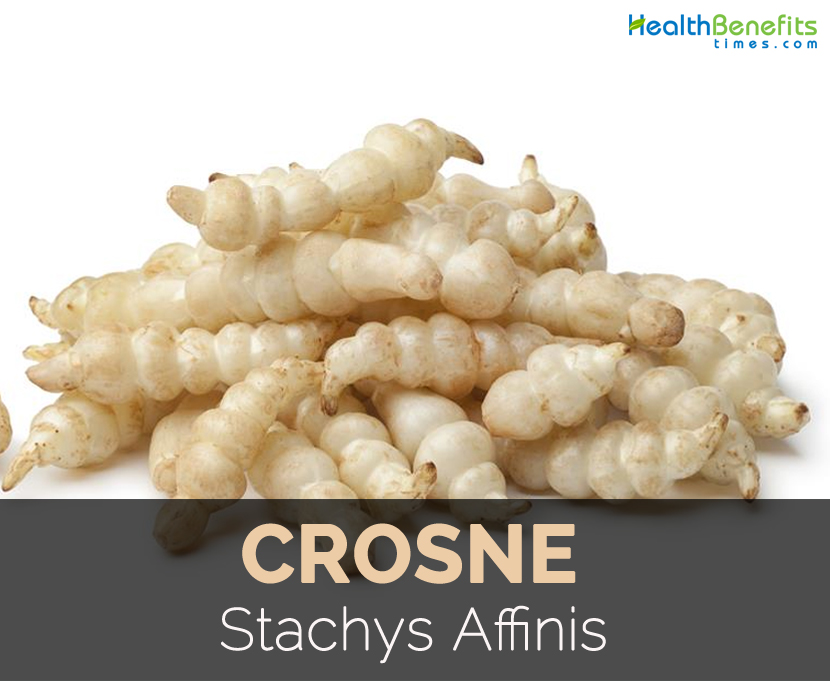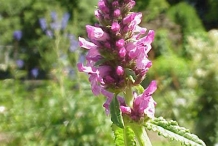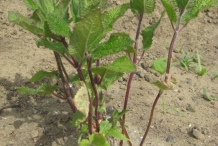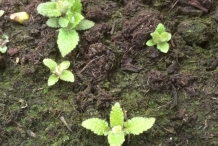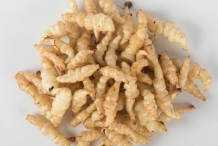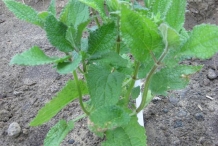Health Benefits of Crosne
The health benefits related to Crosne are discussed below:
- Lower inflammation
It is used for healing ailments. Inflammation is related with managing health problems. It is able to manage inflammatory problems due to active compounds which provide anti-inflammatory properties.
- Reduce headache
Crosne is used for lowering headaches. It is used to aid neuralgia which is used as nerve pain which affects face or head. It is used to lower pain as painkillers which could cause nasty side effects.
- Prevent heart burn
Crosne is an aid for heartburn which is experienced by those mostly suffering from hyperacidity. People with gastroesphageal reflux disease or acid reflux are common with heartburn.
- Regulates bowel movement
It is a great source of fiber. When included on daily diet, it keeps constipation at bay. Consume it with other fiber rich foods and plenty of water for best results.
- Prevent heart problems
Crosne is rich in fiber when consumed regularly. Fiber assists in reducing bad cholesterol which maintains normal blood pressure. Healthy lifestyle and exercise also helps to lower the chances of heart problems.
- Lowers weight
It is helpful for people who are trying to lower weight when added to the regular dies. It is low in fat and high in fiber which is effective to counteract obesity. Due to the richness in fiber, it also prevents overeating and cravings.
Traditional uses
- In China, the plant is used for treating colds and pneumonia.
- The dried or powdered root is used as an anodyne.
Precautions
- Allergic people should avoid it.
- Avoid its excessive use.
How to Eat
- The rhizomes are consumed as root vegetable.
- It is used in salad and vegetable.
- It is pickled in Japanese and Chinese and Japanese cuisine.
- Tubers could be consumed raw or also added to salads, soups, casseroles, stir-fries, sour and sweet, curries and seafoods.
- Tubers could be fried in batter as tempura.
- It could be combined with mushrooms, eggs, noodles and tofu.
- Steam it with other vegetables such as peas, carrots, onions and zucchini.
- Steam it and toss with butter as well as herbs such as parsley, chervil, chives, savory and coriander.
References:
https://www.itis.gov/servlet/SingleRpt/SingleRpt?search_topic=TSN&search_value=833974#null
https://en.wikipedia.org/wiki/Stachys_affinis
Comments
| Crosne Quick Facts | |
|---|---|
| Name: | Crosne |
| Scientific Name: | Stachys Affinis |
| Origin | It is inherent to China – Gansu, Hubei, Hebei, Nei Monggol, Ningxia, Shaanxi, Qinghai, Shanxi, Shandong, Sichuan and Xinjiang. |
| Colors | Black-brown |
| Health benefits | Lower inflammation, Reduce headache, Prevent heart burn, Regulates bowel movement, Prevent heart problems |
| Name | Crosne |
|---|---|
| Scientific Name | Stachys Affinis |
| Native | It is inherent to China – Gansu, Hubei, Hebei, Nei Monggol, Ningxia, Shaanxi, Qinghai, Shanxi, Shandong, Sichuan and Xinjiang. |
| Common/English Name | Chinese artichoke, Chorogi, Artichoke betony, Knotroot, Japanese Artichoke |
| Name in Other Languages | Chinese: De mǔ (地母), Gan lu zi (甘露子), De gǔniú (地牯牛), De ruǐ (地蕊), De cán (地蚕), De niǔ (地钮), Bǎotǎ cài (宝塔菜), Hàn luósī (旱螺蛳), Gānlù er (甘露儿), Gānlù zi (甘露子), Yì mǔ gāo (益母膏), Mǐ lěilěi (米累累), Luóhàn cài (罗汉菜), Luósī cài (螺蛳菜); Danish: Japankartofler, Kinesiske jordskokker, Kinaskok, Stachysknolde; English: Chinese artichoke, Knotroot, Japanese artichoke; French: Artichaut chinois, Crosnes, Artichaut japonais, Crosnes du Japon; German: Chinesische Artischocken, Chinesische Artischocke, Japanische Kartoffel, Knollenkartoffel, Japanziest, Knollenziest, Ziestknollen; Greek: Anginára tis Iaponías (Aγγινάρα της Ιαπωνίας); Italian: Tuberina; Japanese: Chorogi (チョ ロギ); Korean: alskjamphul, tlskjamphul, choseogjam (초석잠); Malay: Tung tung chow; Polish: Czyściec bulwiasty; Portuguese: Crosnes do Japão, estachida do Japão; Russian: Chistec Zibol’d (Чистец Зибольд), Iapnskii artishok (Японский артишок), Kitaiskii artishok (Китайский артишок); Spanish: Alcachofa betónica, Crosne del Japón, Alcachofa china, Estaquídea del Japón; Thai: Thua duang; Afrikaans: Sjinese Artisjok; Brazil: Estachida Do Japão; Bulgaria: Ranilist; Czech: Čistec Hlíznatý; Danish: Jcrosne, Kinaskok, Apankartofl er, Knold-Galtetand, Stachysknolde; Dutch: Crosne Wortelknolletjes, Chinese Artisjok, Japanse Andoorn; Eastonian: Mugul-Nõianõges; Finland: Mukulapähkämö; French: Crosne Du Japon, Crosnes, Épiaire Affi ne, Stachys Tubereux; Hebrew: Eshbal; Lithuanian: Gumbuotoji Notra; Macedonian: Čistec, Japonska Artičoka; Malaysia: Tung-Tung Chow; Mongolian: Argui; Norwegian: Knollsvinerot, Svinerot; Polish: Czysciec Bulwiasty; Portuguese: Alcachofra Chinesa, Estaque, Crosne Do Japao, Rab-De-Raposa, Urtiga Japonesa; Slovašcina: Sieboldov Čišljak; Spanish: Alcachofa China, Crosne Del Japón, Alachofra Tuberose, Estaquídea Del Japón, Ortigs Japonesa; Swedish: Korogi; Tajiki: Anganor; Thailand: Thua-Duang Turkish: Karabos, Japon Enginari, Cine Enginar; Vietnamese: Trung Quốc Atisô; Welsh: March Ysgall |
| Plant Growth Habit | Perennial, erect or inclined deciduous |
| Plant Size | 30 to 120 cm high |
| Stem | Erect or inclined, 30-120 cm |
| Leaves | Ovate-cordate to ovate oblong, 2.5 to 9.5 cm by 1.5 to 3.5 cm wide |
| Flowering Season | July-August |
| Flower | Rose purple |
| Shape & size | Ovoid, 1.5 cm in diameter, tuberculate |
| Color | Black-brown |
| Peel | Pale beige to ivory-white |
| Fruit Season | September |


